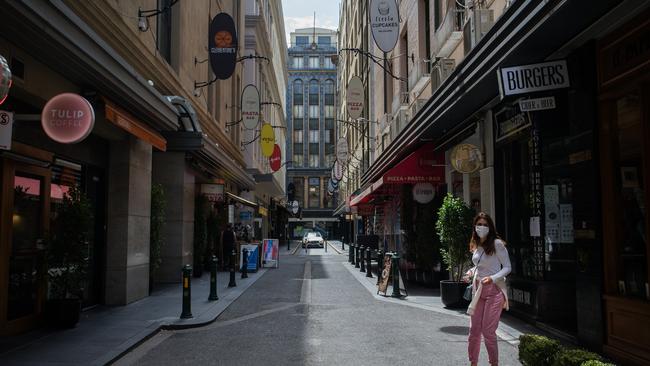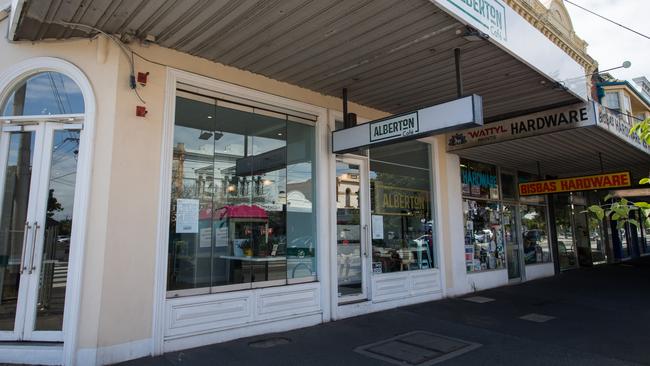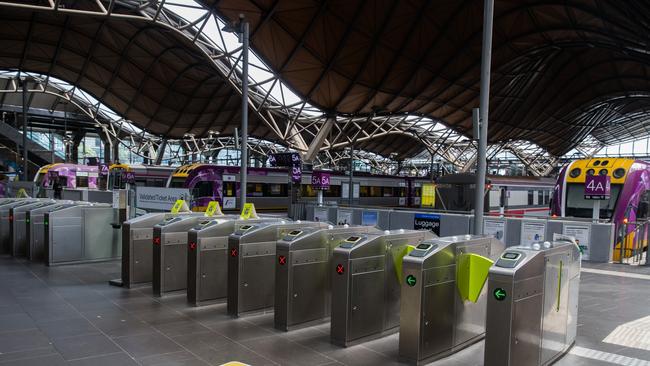Snap lockdown lands billion-dollar blow to Victorian economy
Victoria’s snap lockdown has dealt a billion-dollar blow to the state’s already COVID-battered economy.

Coronavirus
Don't miss out on the headlines from Coronavirus. Followed categories will be added to My News.
Victoria’s snap lockdown has landed a billion-dollar blow on the state’s already battered economy, with restaurants set to lose $100m and florists $36m.
Retail had taken a hit “in the hundreds-of-millions of dollars”, while the state’s powerhouse building and construction sector had been brought to a standstill, sector bosses said.
Industry leaders on Saturday demanded compensation for losses suffered by businesses which had been geared up for their biggest weekend of the year, only to be suddenly shut down.
Some restaurants and function venues lost upwards of $100,000 this weekend alone, with lucrative Valentine’s Day bookings and weddings cancelled.
High-level sources told the Sunday Herald Sun the cost to Victoria of the five-day, hard lockdown could be as high as $1bn dollars.
Victorian Tourism Industry Council (VTIC) chief Felicia Mariani said the tourism industry had been worth $2.5bn a month to the Victorian economy before COVID, but was now completely shut down.

And Restaurant and Catering Association chief Wes Lambert said Victoria’s hospitality sector, which had forked out $27m on fresh produce to cover its busiest weekend of the year, was on track to lose $100 million.
Australian Retailers Association chief executive Paul Zahra said the cost of the snap lockdown to that sector was expected to be in the hundreds of millions of dollars.
Flower Industry Australia chief Anna Jabour said Valentine’s Day was always the busiest day of the year for florists, with stores traditionally turning over three months’ trade in a single day. It was estimated Victorian florists had taken a $36m hit by not being allowed to open today, she said.
“Flowers are a fresh, perishable item and the financial burden this will have on our industry shouldn’t be dismissed or understated,” Ms Jabour said.
For Victoria’s building and construction industry this was “the harshest lockdown”, Master Builders Victoria chief Rebecca Casson said.
“For the first time, our wider industry will be almost completely stopped. It’s a step beyond the Stage 4 restrictions we endured through much of 2020,” she said. “If this lockdown was to go on any longer than five days, there would be catastrophic economic ramifications.”
Victorian Chamber of Commerce and Industry chief Paul Guerra called on the state government to provide “targeted support” for businesses to compensate for perished food, goods and cancellations, not covered by insurance.

“Without this, the reality is doors will close indefinitely and jobs will be lost,” he said.
Mr Guerra also demanded the state government guarantee the lockdown would end after five days.
“Business needs this reassurance to prepare to welcome staff and patrons back and secure stock and other logistics,” he said.
Melbourne Lord Mayor Sally Capp said the council would consider calling for an extension of state and federal government support programs, to help beleaguered city businesses. COVID had hit Melbourne’s economy harder than any other part of the country and thousands of businesses — particularly in tourism and hospitality — faced having to lay off staff unless they received more financial support, she said.
“Many businesses have taken another hit by the latest lockdown and it will take time for them to get back on their feet,” Cr Capp said.
“Our businesses need certainty and we need all levels of government to outline their plans to stimulate economic recovery.”
Will Newton, the owner of Windsor bar and restaurant Lover, said losing lucrative Valentine’s Day trade had cost his Chapel St business $20,000 in redundant food and lost business, following a devastating 12 months.
“This is just soul destroying,” Mr Newtown said. “We had a fully-booked restaurant and extra staff committed to a night which was supposed to help us get back on our feet … Valentine’s Day was going to be our busiest day.”





